
Amanda Owen is a tweeting shepherdess from Yorkshire, who has written a book about life on a hill farm in England. We caught up with her while she was baking pies and scones to find out what it is like to live on a farm, and how she and her family cope with living in such a remote location.
Are You A Shepherdess or a Farmer?

Where does shepherding finish and farming start? Since my day revolves around looking after woolly sheep, I think we will go with shepherdess. There is a lot more to the job than the traditional idea of running around with a crooked stick, and a dog, chasing after sheep.
When Did You Decide to Work with Animals?

It was down to reading James Herriot books as a child. I knew I wasn’t clever enough to study veterinary science, so it was a question of looking into how else I could work with animals. I went into the library and borrowed an absolutely amazing book called Hill Shepherd about life as a hill shepherd in the Yorkshire Dales, and I knew that was what I wanted to do.
How Did You Train?
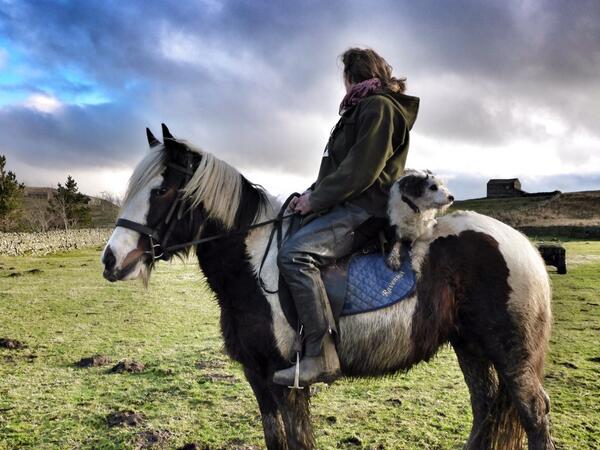
I started a college course to be a veterinary nurse, as that was the nearest I could get to what I wanted to do. On the same campus, there was also an agriculture college, and the lecturers helped me get some work experience on farms. I was a girl who didn’t know anything about farming but I was pretty strong and people will give you a chance if you are enthusiastic enough!
Did You Always Want to be a Shepherd?
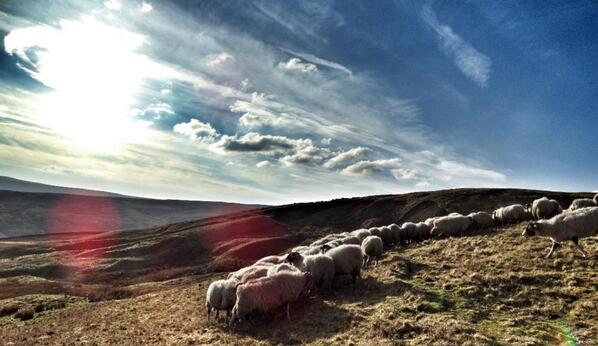
Yes, I even had a set idea in my mind of what kind of a shepherd I’d like to be. I wasn’t interested in the industrial sheds, with commercial farming; I wanted it to be more dog and stick . The big farms are good for getting first experience. You have nice square fields with white fences, and you can ride around them on a Land Rover, or on a bike. You can get away working there without a sheepdog, but the places I wanted to work were very much the kind of place where you went out on foot, and walking over scree and bracken, over the mountains.
There are colleges where you can go to learn the basics of raising sheep, but you need to get out there and meet the people, to get to know the lay of the land. Where is it safe to have your sheep, where might they get blown over in a bad storm, and that is something you can’t learn from a book. All you can do is pick it up from people who were there before you.
When we go up to our favourite places to feed the sheep, we can look out across the moors and you can see absolutely nothing that tells you what time, or what age you are living in. There are no electricity pylons, no roads, no road signs – you can’t see anything.
What is Life on a Hill Farm Like?
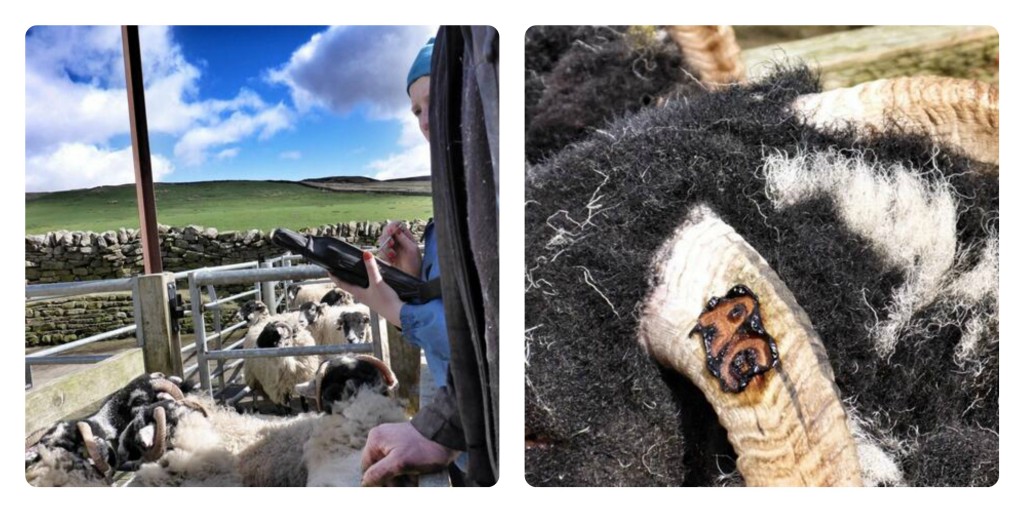
From November to April, it is quiet. There are no walkers, it is just me and my family and the sheep. Throughout the summer months, the whole world comes to me, so I get the best of both worlds.
We are clearing the meadows at the moment. We have to get the sheep out of the meadows and back up onto the hills because we need to grow the hay, so that mid-July onwards, we can make the hay to feed the animals in the winter. It is a cycle, you see. I get a lot of enjoyment from people visiting who don’t know how a hill farm works, and I can explain it, so I feel that I can impart that knowledge to them in the same way others did to me.
Then you have age old traditions, where you are cutting initials into the horns of the sheep. These are the initials of someone who lived generations ago, who we don’t even know. And along side doing that, you also got a digital scanner that is reading the ear tags. I like sharing my day via Twitter, with people from all over the world; that is amazing.
What is The Most Challenging Part?
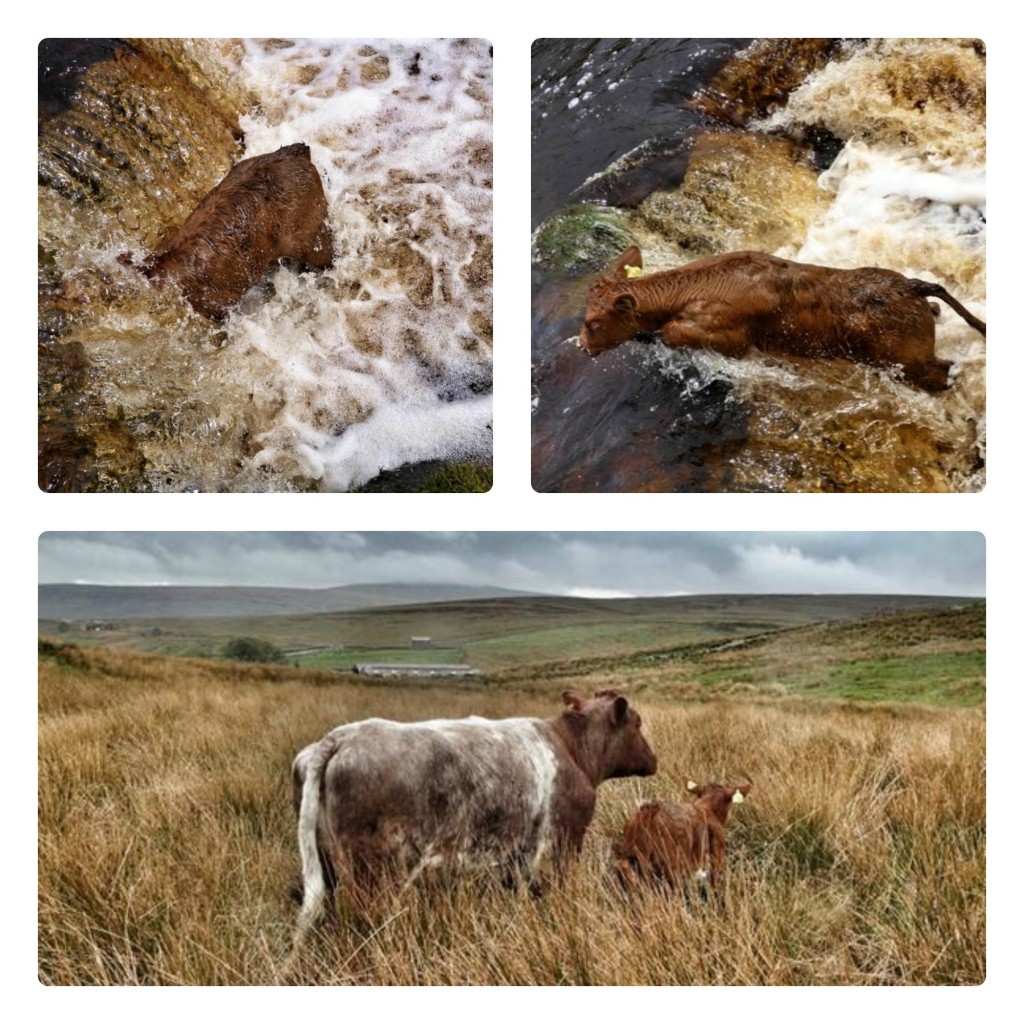
We Brits like to yak on about the weather, but for us it is a massive thing. Our farm is quite high up, so we have long winters and short summers. You can’t shear the sheep when they are wet, because the wool will rot. You also need hot, dry weather to make the hay, and if you don’t get the hay stored in summer, it will cost you a fortune to buy feed for the animals. So, it can be quite stressful.
On the other hand, when you done all these jobs, it is such a great feeling of satisfaction. There is a saying ‘hay in the barn is like money in the bank’, and that is so true. You have bad weather, you have things go wrong, but then you will have the good times too. Just this weekend we had three heifer calves born on the farm, so we were absolutely jubilant. Then it rained really heavily, and when we went up to check on them, one of the calves was missing. We thought it had drowned, and then we found it stuck under a waterfall! We have ups and downs and never ever a dull moment!
Do Your Kids Want to be Farmers?

They haven’t said yet, but they don’t have to be if they don’t want to be. They have responsibilities and have jobs to do at home. I think it is important for children, no matter what career you want to do, that you know that you have to do things.
How Do They Get to School?
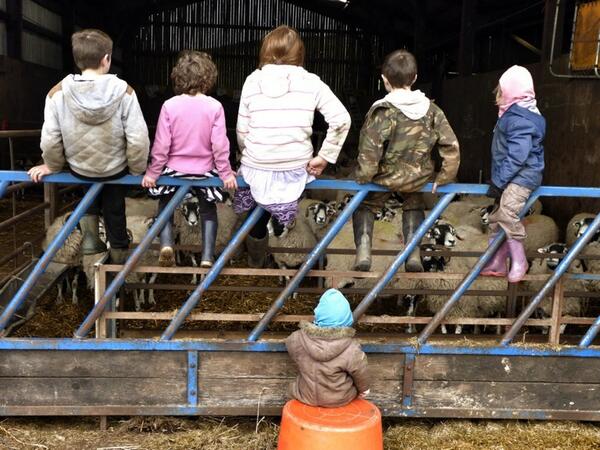
A taxi comes to the yard to pick them up. My oldest daughter goes to school 27 miles away. She leaves the farm at 7.30am for 9am start. The problem isn’t the distance, it is the time it takes to travel on the small roads.
We live remotely, but you are only as isolated as you want to be. We have people who walk past, and we had a satellite dish put in so that we can access the internet. It didn’t go down so well with the children though. When they used to get snowed it, they couldn’t get to school. Now their schools email their work and they have to do it at home.
They have TV but they don’t have video games or consoles. They do a lot of craft work, and they are outside a lot. After school in the summer, they want to go down to the river, and splash about.
Amanda’s book The Yorkshire Shepherdess is available in bookstores now, and she is always happy to chat on Twitter (where she shares her fantastic photos of life on a hill farm).
All photos copyright of Amanda Owen




So good to read a magazine aimed at children which expands their horizons as opposed to constricting them according to what sex they are. Amanda a great role model and spokesperson for farming.